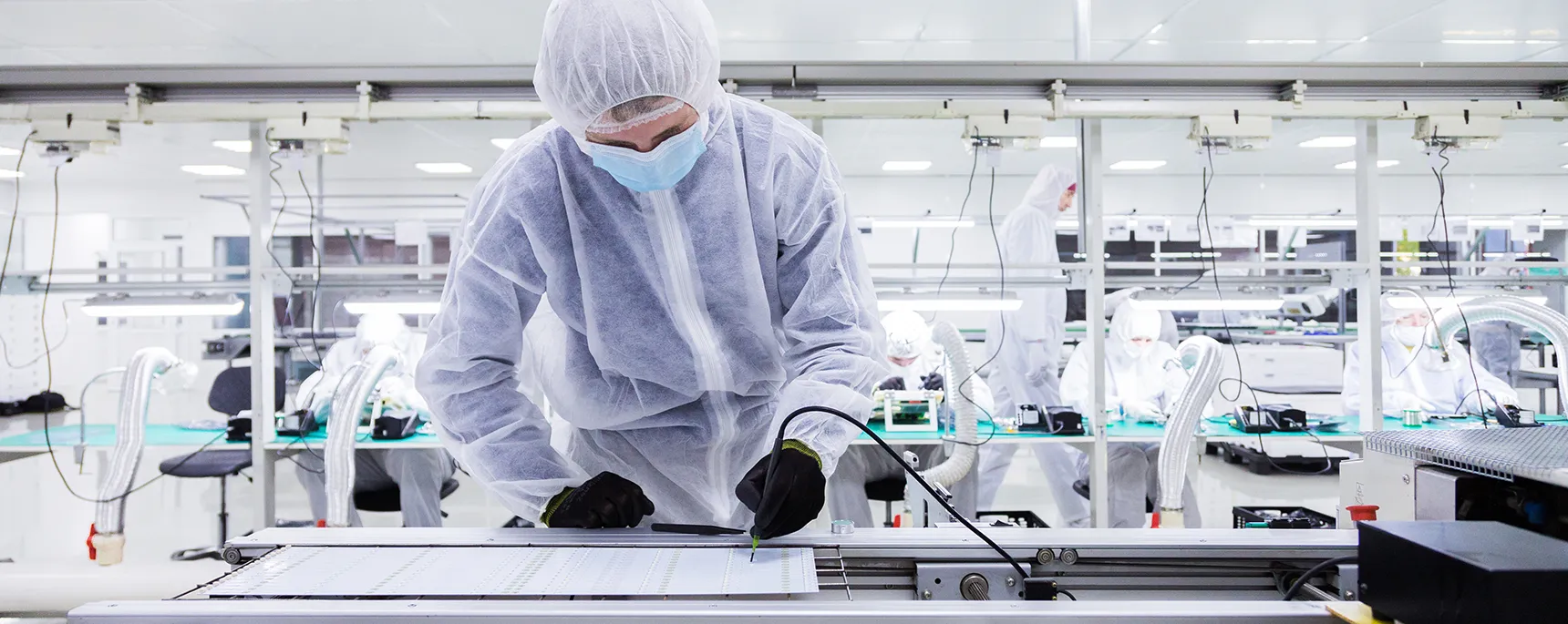
SafyrOPC for Clean room monitoring

Real time particle counter for clean room safety
In industrial environments, particularly cleanrooms, fine particle airborne presence can significantly compromise process quality, product conformity and personal safety.
Controlling fine particles in cleanrooms is essential to maintain air quality in line with regulatory requirements, ensure the reliability of manufactured products and protect employee health. Sectors such as pharmaceuticals, electronics and food & beverage rely heavily on this rigorous control.
Addressing Air Quality Challenges in Clean Rooms
Clean rooms are specialized environments designed to maintain extremely low levels of airborne particulates, pollutants, and contaminants. These controlled environments are critical in sectors such as pharmaceuticals, biotechnology, electronics, and medical device manufacturing, where even the smallest deviation in air quality can compromise product integrity and safety. To maintain these standards, the ISO 14644 series sets the international criteria for clean room classification and monitoring, focusing on the control of airborne particulates and cleanliness.
Ensuring compliance with these standards is not only a technical necessity but also a regulatory requirement in many industries. Tera-Sensor’s NextPM solution provides advanced particle monitoring capabilities that help facilities achieve and maintain these stringent standards, ensuring product quality and safety.
Maintaining Air Quality Standards in Clean Rooms
Understanding ISO 14644 and Regulatory Compliance
In the European Union, clean rooms used for pharmaceutical production must also comply with EudraLex Volume 4, which outlines Good Manufacturing Practices (GMP) specific to the industry. Monitoring systems that provide continuous real-time data on particle concentration are crucial for maintaining compliance with these standards and ensuring that the environment remains within the acceptable parameters.
Impact of Poor Air Quality on Clean Room Operations

Benefits of Real-Time Air Quality Monitoring in Clean Rooms
Preventing Contamination and Product Loss
Enhancing Process Efficiency and Reducing Downtime
FAQ
Q: What particulate sizes does the NextPM sensor measure?
NextPM measures particulate matter in three standard fractions—PM1, PM2.5, and PM10—as well as particle counts across five granulometric channels (0.3-0.5 µm, 0.5-1 µm, 1-2.5 µm, 2.5-5 µm, and 5-10 µm).
Q: How accurate is the NextPM sensor compared to traditional instruments?
NextPM sensors have shown excellent accuracy, with correlation coefficients exceeding 0.95 when compared to certified reference instruments in independent field studies.
Q: Does NextPM require frequent maintenance?
No. The NextPM sensor includes patented humidity management and anti-clogging technology, significantly reducing maintenance needs. Its design allows up to 10 years of continuous use with minimal maintenance.
Q: How does NextPM handle humidity issues?
NextPM features a patented humidity regulation system using internal heating resistors that maintain humidity levels inside the sensor below 60%. This prevents particle swelling and ensures accurate measurements even in humid environments.
Q: What communication protocols are available with NextPM?
NextPM supports UART, Modbus, offering flexibility and ease of integration with various systems.
